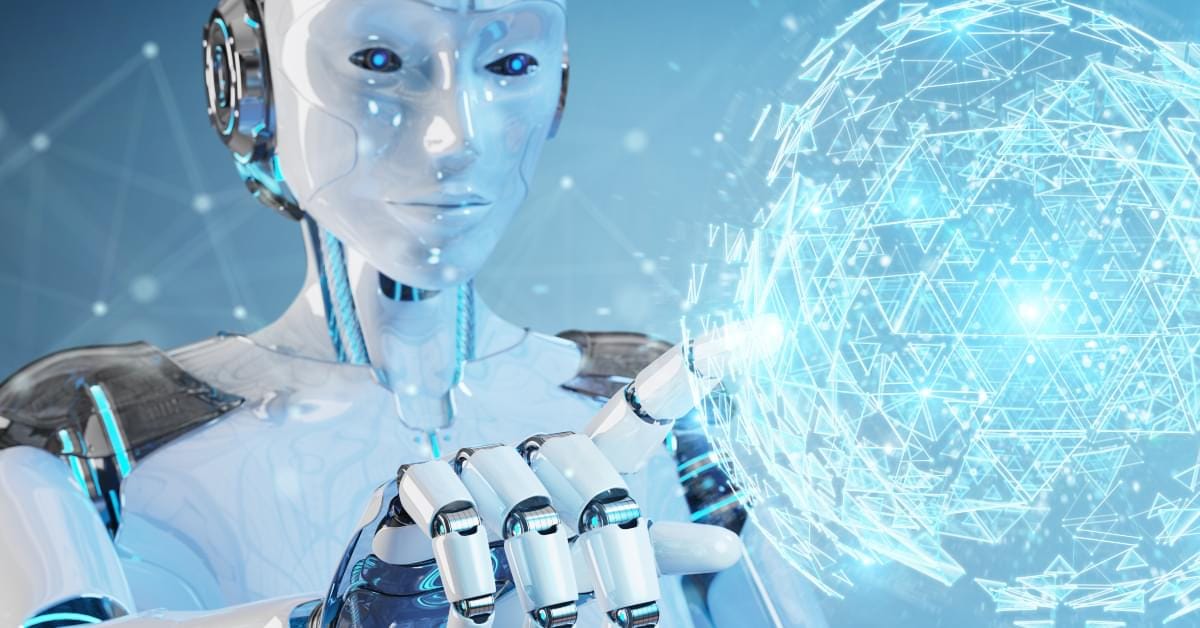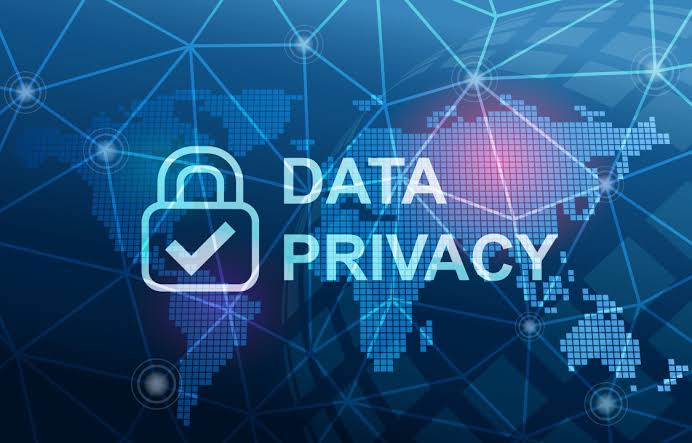
Women in Tech: Breaking Barriers in AI and Cybersecurity
Women are increasingly breaking barriers in the fields of AI and cybersecurity, overcoming challenges like bias and lack of representation. Their involvement brings innovation, inclusivity, and ethical balance to tech development. Through education, mentorship, and supportive communities, women continue to lead groundbreaking work and inspire the next generation. The future is promising as industries actively strive for gender diversity and women gain visibility and influence across all tech dom
✨ Raghav Jain

Introduction
The tech industry has long been dominated by men, but in recent years, the narrative has started to shift. Across the globe, women are stepping into leadership roles, contributing to innovations, and reshaping the landscape in fields like Artificial Intelligence (AI) and Cybersecurity—two of the fastest-growing and most influential sectors in technology.
While women still face significant challenges in tech, from gender bias to lack of representation and mentorship, they are not only entering these complex fields—they are excelling. This article explores the evolving role of women in AI and Cybersecurity, the challenges they overcome, their contributions, and how the tech ecosystem can become more inclusive and diverse. The burgeoning fields of Artificial Intelligence (AI) and Cybersecurity, critical pillars of the modern digital landscape, are undergoing a profound transformation driven by increasing recognition of the indispensable role of diversity, particularly the contributions of women. Historically, the broader tech industry, and these specialized domains within it, have been largely male-dominated, a legacy stemming from various socio-economic barriers, cultural biases, and a pervasive, often unconscious, perception of tech as a "male" sphere. However, a powerful and undeniable shift is underway, with women actively breaking barriers, shattering glass ceilings, and proving that their unique perspectives, analytical rigor, and innovative approaches are not just beneficial but absolutely essential for the advancement and robustness of AI and cybersecurity. This paradigm shift is not merely an ethical imperative for gender equality; it is a strategic necessity that directly impacts the quality, fairness, and effectiveness of the technological solutions being developed to protect and propel our increasingly interconnected world.
The historical underrepresentation of women in computing, despite their foundational contributions – from Ada Lovelace, often credited with the first algorithm, to Grace Hopper, a pioneer in programming languages, and the "human computers" who fueled early scientific advancements and wartime code-breaking efforts – created a pipeline problem that has only recently begun to be addressed. In India, for instance, while female participation in the contractual tech workforce has seen a notable rise, particularly in Global Capability Centers (GCCs), a significant gap persists, especially in leadership and specialized roles within AI and cybersecurity. Statistics reveal that women comprise only about 17-24% of cybersecurity professionals globally, and similar disparities exist in AI development. This gender gap isn't just about numbers; it translates into tangible risks and limitations in the very technologies that govern our lives.
One of the most compelling arguments for greater female inclusion in AI and cybersecurity lies in the critical need for diverse perspectives. AI models are trained on data, and data is a reflection of human experiences. If the teams developing and training these AI systems are homogenous, they inherently embed unconscious biases present in the limited dataset or the developers' own viewpoints. For example, facial recognition systems have notoriously struggled with accurately identifying women or individuals from underrepresented backgrounds due to biased training data. Similarly, in cybersecurity, threat modeling developed by a narrow demographic might overlook vulnerabilities that disproportionately affect other user groups or industries. Women bring distinct cognitive approaches, ethical considerations, and lived experiences that help reduce algorithmic bias, introduce more balanced and human-centric approaches in AI design, and foster a comprehensive understanding of threat landscapes in cybersecurity. Their insights can lead to the development of more equitable, inclusive, and robust AI systems, as well as more resilient and adaptable security strategies that protect a wider array of users and assets. This diversity of thought fosters greater creativity, leads to more innovative solutions, and enhances problem-solving capabilities in fields where ingenuity and foresight are paramount.
Breaking into and ascending within AI and cybersecurity presents unique challenges for women. Lack of mentorship and visible role models is a significant hurdle. When aspiring professionals see few women in leadership or highly technical roles, it can lead to a sense of isolation and intensify impostor syndrome. Addressing this requires concerted efforts from organizations to establish strong mentorship programs and actively promote successful women in these fields to create visible pathways for others. Gender pay gaps and hiring biases continue to be prevalent, with reports indicating a persistent pay disparity even in the growing Indian tech sector, especially at senior levels and in high-demand roles. Overcoming these biases requires consistent corporate policies, awareness training for hiring managers, and targeted recruitment programs aimed at attracting and retaining female talent. Work-life balance in demanding tech roles is another area of concern, as the long hours and high-pressure environments can disproportionately affect women who often bear a greater share of domestic and caregiving responsibilities. Companies are increasingly recognizing the need for flexible work arrangements, supportive policies, and inclusive workplace cultures that support long-term career growth for women. Furthermore, underrepresentation in boardrooms and policymaking bodies means that women's voices are often missing from strategic decisions that shape the future of AI and cybersecurity, from ethical guidelines to national security strategies.
Despite these challenges, women are making significant strides and leading groundbreaking initiatives globally and in India. In AI, pioneers like Dr. Fei-Fei Li, a leading AI researcher and co-creator of ImageNet, and Dr. Joy Buolamwini, whose work exposed algorithmic bias in facial recognition, are at the forefront of ethical AI development. In India, Usha Rengaraju is recognized as the first female developer of AI in the country and a Kaggle GrandMaster, while Dr. Geetha Manjunath founded NIRAMAI, a deep tech startup using AI for early breast cancer detection. These women are not only pushing the boundaries of AI research and application but also advocating for responsible and unbiased AI development. Similarly, in cybersecurity, women like Parisa Tabriz (Google's "Security Princess" and former head of Chrome Security) and Sarah Armstrong-Smith (Chief Security Advisor for Microsoft EMEA) are leading complex security operations and shaping industry standards. In India, initiatives like Digital Shakti and government schemes such as WISE-KIRAN (Women in Science and Engineering-KIRAN) are actively working to educate, empower, and train women in cybersecurity and STEM fields, creating a pipeline of skilled female professionals. These programs, alongside efforts from non-profits and industry associations, aim to bridge the gender gap by offering mentorship, skill development in areas like Python programming, machine learning, ethical hacking, and cloud security, and fostering supportive communities.
The impact of women in tech, particularly in AI and cybersecurity, extends far beyond individual achievements. Their presence fosters a more inclusive culture, challenging existing stereotypes and encouraging more girls and young women to pursue STEM careers. Research consistently shows that diverse teams outperform homogeneous ones in innovation, problem-solving, and financial returns. In cybersecurity, this translates to more resilient defenses and a broader understanding of threats. In AI, it means developing technologies that are fairer, more equitable, and beneficial for all segments of society, reducing the risk of perpetuating or amplifying societal biases. As AI continues to blend with critical sectors like healthcare, finance, and governance, the active participation of women ensures that technology evolves with empathy, inclusivity, and safety at its core.
In conclusion, the journey of women in AI and cybersecurity is a testament to resilience, intellect, and an unwavering commitment to shaping a safer, more equitable digital future. While historical imbalances and persistent challenges like bias, lack of mentorship, and work-life integration continue to exist, the increasing recognition of the strategic importance of diversity is driving significant change. From pioneering research in ethical AI to leading complex cyber defense operations, women are not just breaking barriers; they are actively reshaping these fields, bringing unique perspectives, fostering innovation, and building technologies that truly serve humanity. Supporting their growth through targeted education, robust mentorship, inclusive workplace policies, and amplified visibility of their achievements is not merely an act of fairness, but a strategic imperative for the sustained growth, security, and ethical development of the global digital ecosystem.
The Current Landscape: Women in Tech
Despite progress in gender equality, women remain underrepresented in the tech industry. According to recent studies:
- Women make up only 28% of the workforce in science, technology, engineering, and math (STEM).
- In AI roles, women account for just 22% globally.
- In Cybersecurity, the number is even lower, with women holding approximately 24% of roles as of 2023.
This underrepresentation is not due to a lack of talent or interest. The reasons include cultural stereotypes, lack of encouragement during early education, and fewer role models or mentors for aspiring women professionals in these fields.
Why AI and Cybersecurity Matter
Artificial Intelligence (AI)
AI is transforming the way we live and work—from predictive algorithms in healthcare and finance to machine learning models that drive autonomous vehicles. As AI becomes more integrated into daily life, it’s crucial that development teams include diverse perspectives to avoid bias in algorithms and ensure ethical innovation.
Cybersecurity
With growing concerns about data breaches, privacy, and digital warfare, cybersecurity is at the forefront of protecting digital infrastructure. Women bringing their unique perspectives to these roles enhance problem-solving, empathy in security design, and innovative thinking in defense mechanisms.
Barriers Women Face in AI and Cybersecurity
While some progress has been made, women continue to encounter systemic and cultural challenges that hinder their growth in AI and cybersecurity roles.
1. Gender Stereotypes and Bias
Many girls are steered away from math and science at a young age. When they do pursue STEM, they often find themselves in environments where their competence is questioned, or they are not taken seriously.
2. Lack of Mentorship and Role Models
There are few visible female leaders in AI and Cybersecurity, making it difficult for young women to envision a successful path in the field. Mentorship is critical, yet many women struggle to find mentors who understand their unique challenges.
3. Unequal Pay and Growth Opportunities
Even when women do break into tech, they often earn less than their male counterparts and receive fewer promotions. This contributes to higher attrition rates and fewer women at the executive level.
4. Work-Life Balance Struggles
The demanding nature of tech jobs, especially in fast-evolving areas like AI and Cybersecurity, can make work-life balance a challenge—particularly in environments that lack flexibility and supportive policies.
Women Who Are Breaking Barriers
Despite the hurdles, many women are pioneering change and achieving remarkable success in AI and Cybersecurity. Their stories are inspirational and pave the way for future generations.
Fei-Fei Li – AI Leader
A professor at Stanford University and co-director of the Stanford Human-Centered AI Institute, Fei-Fei Li is one of the most influential voices in AI. She advocates for inclusive AI and works to ensure the ethical development of technology.
Parisa Tabriz – Google’s “Security Princess”
Parisa Tabriz, who leads Chrome’s security team at Google, has become a symbol of female excellence in cybersecurity. Her leadership has helped build stronger digital protection systems while encouraging more women to enter the field.
Kate Crawford – Ethical AI Advocate
Kate Crawford is a leading researcher on the social and political implications of artificial intelligence. Her work emphasizes transparency, fairness, and accountability in AI systems, challenging the industry's blind spots.
Keren Elazari – Cybersecurity Analyst and Speaker
Keren Elazari is a cybersecurity expert and ethical hacker. Her TED Talk on hackers' role in internet security has inspired thousands of women worldwide to see cybersecurity as a field of creativity and empowerment.
How Women Are Changing the Tech Culture
Women in AI and Cybersecurity are doing more than just occupying roles—they're transforming how tech companies think, build, and operate.
1. Promoting Ethical AI
Women often bring different ethical considerations and diverse viewpoints, which are vital for preventing bias in machine learning and data analysis. Their voices help design AI that’s more inclusive, fair, and socially responsible.
2. Enhancing Human-Centric Cybersecurity
Women are advocating for cybersecurity frameworks that protect not just infrastructure but also the people who interact with them. This includes privacy rights, psychological safety online, and user-centered design in security solutions.
3. Building Diverse Teams
Female leaders are intentionally creating more inclusive teams, advocating for policies like flexible hours, maternity leave, and diversity hiring. These measures don’t just benefit women—they improve team morale and productivity across the board.
4. Encouraging Girls in STEM
From coding bootcamps to school outreach, many women in tech invest in education and mentorship. They understand the importance of reaching girls early to spark interest in STEM careers.
The Role of Education and Policy
Systemic change requires more than individual success stories—it needs support from educational institutions, governments, and organizations.
STEM Programs for Girls
Initiatives like Girls Who Code, She Hacks, and Women in AI provide education, community, and exposure to technology at an early stage. These programs play a crucial role in building confidence and technical skills among young women.
Scholarships and Grants
Providing financial support to women pursuing STEM education encourages diversity. Tech companies and universities are increasingly offering scholarships for women in AI, machine learning, cybersecurity, and data science.
Corporate Inclusion Policies
Companies must implement policies that promote equity—such as transparent pay scales, equal promotion opportunities, and harassment-free workplaces. Employee resource groups (ERGs) for women can also provide community and support.
How Organizations Can Support Women in Tech
Creating an inclusive environment where women in AI and Cybersecurity can thrive involves intentional efforts:
- Mentorship Programs: Pairing junior women with senior leaders.
- Inclusive Hiring Practices: Removing gender bias from job descriptions and interview panels.
- Leadership Development: Offering training and pathways to leadership roles.
- Flexible Work Policies: Recognizing the need for work-life balance.
- Recognition and Visibility: Celebrating women’s contributions through awards and promotions.
Why Diversity in Tech Is a Strength
Including women and other underrepresented groups in tech is not just about fairness—it makes business sense.
- Better Problem Solving: Diverse teams bring varied perspectives, leading to more innovative solutions.
- Reduced Bias: Diverse developers help build AI that reflects broader societal needs.
- Increased Profitability: Companies with gender-diverse leadership often outperform those without.
Conclusion
Women are redefining the boundaries of what's possible in AI and Cybersecurity. They are not only solving complex technical problems but also shaping ethical, inclusive, and sustainable futures for technology. While the path remains challenging, every breakthrough by a woman in tech chips away at the barriers, inspiring others to follow.
To truly empower the next generation of women in tech, we must collectively foster environments that value diversity, promote equality, and celebrate innovation. From classrooms to boardrooms, when women rise, technology rises with them.
Q&A Section
Q1: What challenges do women face in the tech industry, especially in AI and cybersecurity?
Ans: Women often face gender bias, lack of mentorship, limited leadership opportunities, and workplace stereotypes, making it harder to grow in male-dominated fields like AI and cybersecurity.
Q2: Why is it important to have women in AI and cybersecurity?
Ans: Diverse teams bring varied perspectives, reduce algorithmic bias, and create more inclusive, ethical, and effective technological solutions.
Q3: How are women contributing to advancements in AI?
Ans: Women researchers and engineers are leading projects in machine learning, natural language processing, and ethical AI development across top tech firms and research institutions.
Q4: What roles do women play in cybersecurity today?
Ans: Women are working as ethical hackers, cybersecurity analysts, threat intelligence experts, and C-level executives, contributing to stronger digital defense systems.
Q5: How can education help more women enter AI and cybersecurity fields?
Ans: Education in STEM, coding bootcamps, and scholarships encourage women to gain the skills and confidence needed to excel in these industries.
Q6: What are some initiatives that support women in tech?
Ans: Programs like Women Who Code, Girls Who Code, and SheSec promote education, networking, and mentorship opportunities specifically for women in tech.
Q7: What impact do role models have on women in tech?
Ans: Visible role models inspire confidence, show what’s possible, and motivate young women to pursue careers in AI and cybersecurity.
Q8: How can companies support gender diversity in tech roles?
Ans: Companies can offer equal pay, mentorship, inclusive hiring practices, flexible work options, and safe, respectful workplaces to support women.
Q9: Are there successful women leaders in AI and cybersecurity today?
Ans: Yes, leaders like Fei-Fei Li in AI and Parisa Tabriz in cybersecurity are pioneers who inspire and influence the future of tech.
Q10: What is the future outlook for women in tech?
Ans: With growing awareness and support, more women are entering and thriving in tech roles, paving the way for a more balanced and innovative tech future.
Similar Articles
Find more relatable content in similar Articles

The Role of Robotics in Streng..
Robotics plays a vital role i.. Read More

The Future of Cybersecurity: A..
The future of cybersecurity i.. Read More

Rising Cyber Crimes: Latest T..
Cyber crimes are rapidly grow.. Read More

Data privacy regulations (GDPR..
Data privacy regulations such.. Read More
Explore Other Categories
Explore many different categories of articles ranging from Gadgets to Security
Smart Devices, Gear & Innovations
Discover in-depth reviews, hands-on experiences, and expert insights on the newest gadgets—from smartphones to smartwatches, headphones, wearables, and everything in between. Stay ahead with the latest in tech gear
Apps That Power Your World
Explore essential mobile and desktop applications across all platforms. From productivity boosters to creative tools, we cover updates, recommendations, and how-tos to make your digital life easier and more efficient.
Tomorrow's Technology, Today's Insights
Dive into the world of emerging technologies, AI breakthroughs, space tech, robotics, and innovations shaping the future. Stay informed on what's next in the evolution of science and technology.
Protecting You in a Digital Age
Learn how to secure your data, protect your privacy, and understand the latest in online threats. We break down complex cybersecurity topics into practical advice for everyday users and professionals alike.
© 2025 Copyrights by rTechnology. All Rights Reserved.